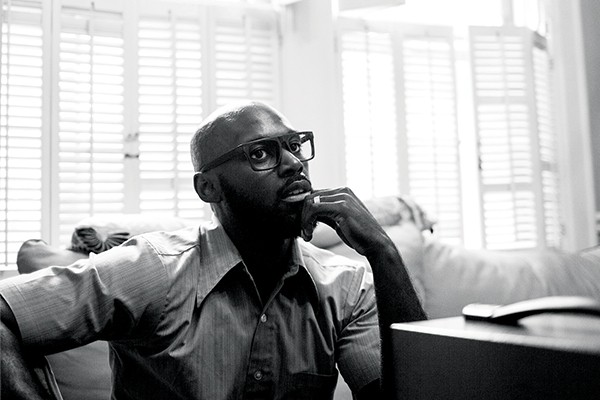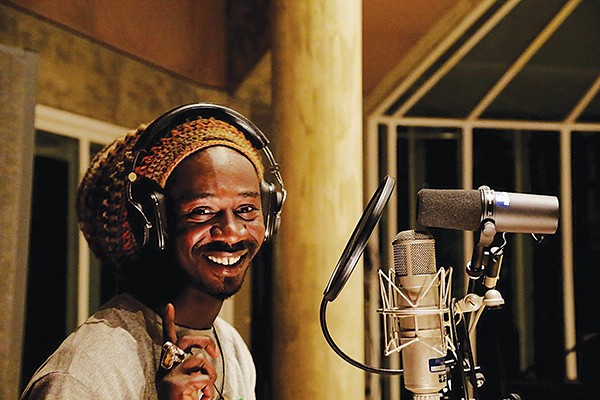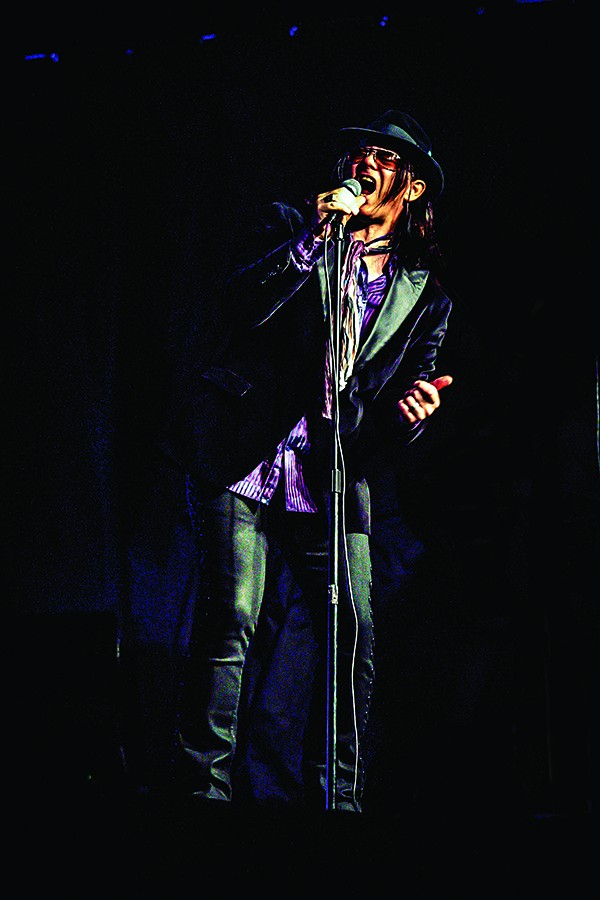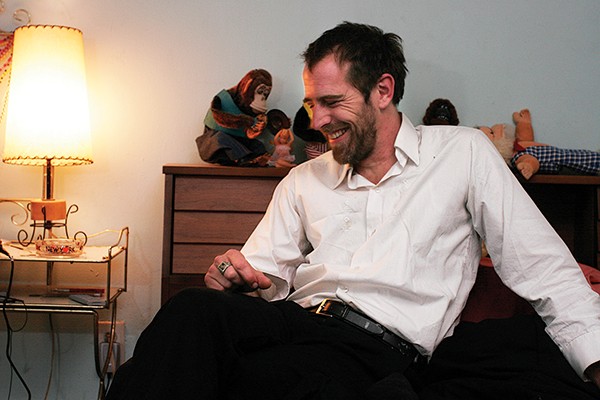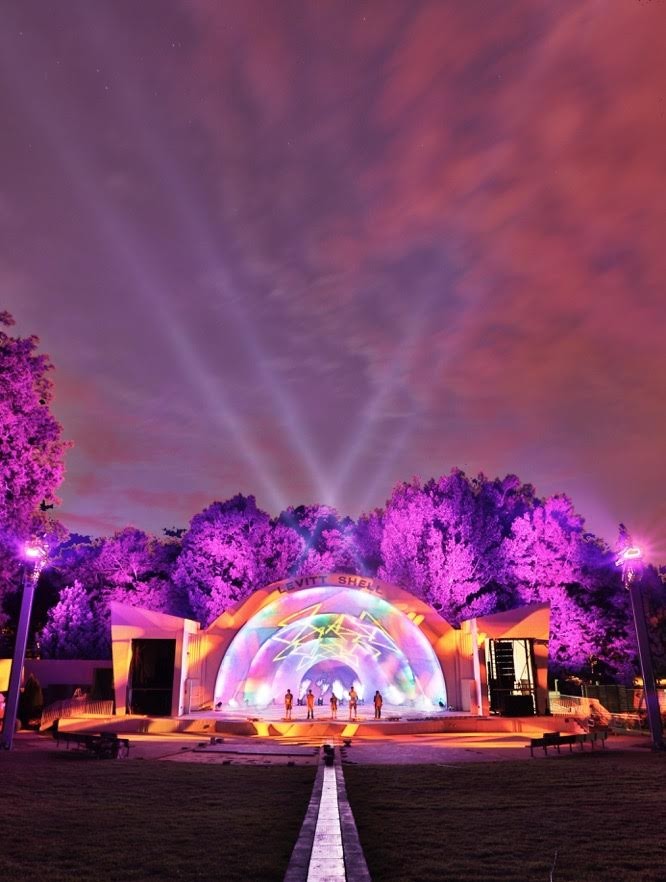
How many times did Memphis almost lose the Overton Park band shell? The Depression-era amphitheater, now called the Levitt Shell, was slated to become a parking garage in the 1970s, but that didn’t pan out. History repeated itself in the 1980s, when a parking lot was proposed. Plans for a $2 million walk-in theater were scrapped in the 1960s, when Memphis Concert Orchestra conductor Noel Gilbert — a former leader of the house orchestras for both WMC and WREC radio — successfully organized against the development.
Over the years the Shell experienced its share of disasters. It was flooded, storm-battered, and set on fire. It’s been riddled with toxic mold, covered in graffiti, occupied by hippies, and nearly buried underneath an interstate. By 2007, it was falling in on itself with repair costs estimated at more than $500,000.
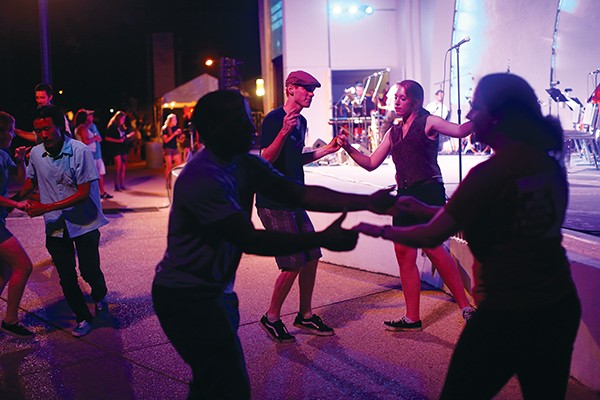
So the city, which had given up on the historic performance venue long ago, declared the Shell a liability and shut it down. It reopened a year later, following significant renovations made possible by support from the Mortimer & Mimi Levitt Foundation. And with that, after decades of nagging uncertainty, the stage where Elvis Presley, Scotty Moore, and Bill Black performed their first professional concert as a warm-up act for country yodeler Slim Whitman was saved for good.
Since its rechristening seven summers ago, the Levitt Shell has produced 50 free concerts a year, showcasing a diverse slate of artists and genres. This season, following an extensive, $2.1 million makeover, it’s back with 50 more concerts and looking better than ever. The remaining portion of a $4 million fund-raising campaign goes toward insuring the model’s sustainability.
In spite of the work done in 2008, upgrades to the 80-year-old facility were inevitable and necessary.
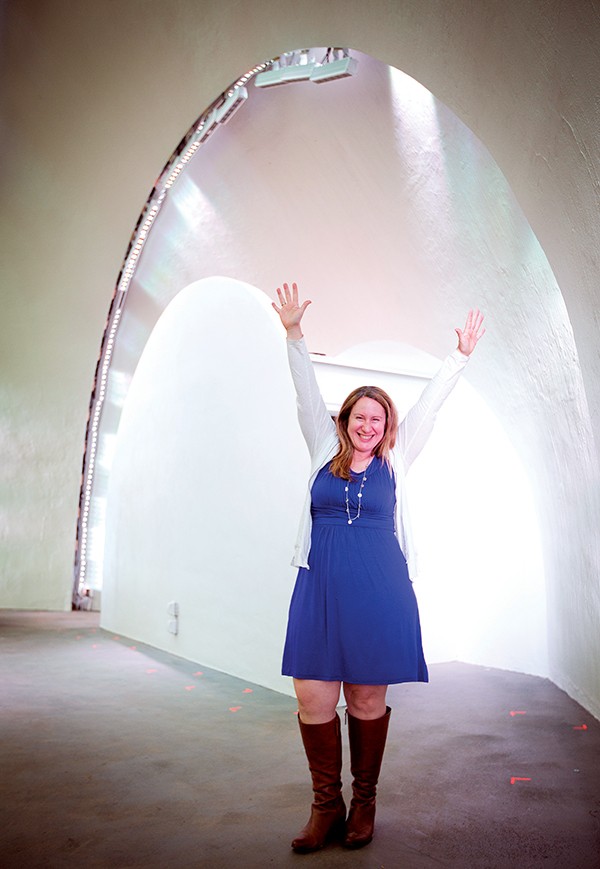
From dances to donation buckets, Anne Pitts (below) gets hyped about the Shell.
Anne Pitts, Levitt Shell’s executive director, says, “Before the first renovation, we went around to different businesses and said, ‘Hey, we’ve got this idea of taking the Shell and presenting a bunch of concerts, and we’re not going to charge anybody a dime.’ Well, everybody thought that idea sounded pretty insane so, consequently, funding was limited.”
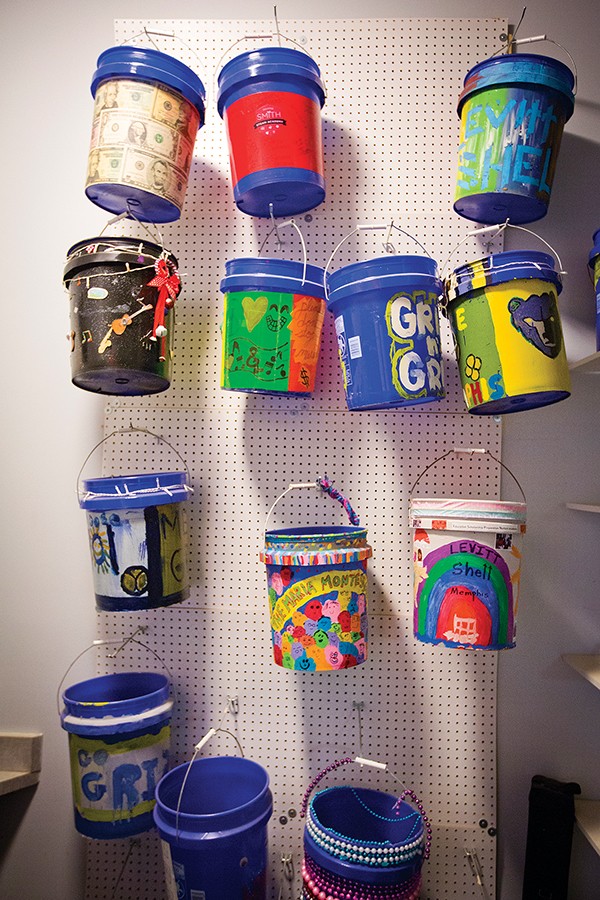
The first renovation was just enough to stabilize the building and get the summer music series started. Basic sound and lighting was added, and dilapidated wooden benches were removed to create an open space where families could picnic.
“The sound system held up, but it was literally held together with duct tape,” Pitts says. “Lights that were state-of-the-art eight years ago have been discontinued, and you can’t even buy them on eBay. Couple that with a lack of infrastructure and electricity and plumbing that hasn’t been upgraded since the 1960s. That’s where we were when this all started.”
From drainage issues and cable management to spacious, tree-friendly decks and new restrooms, all the venue’s shortcomings were addressed in this year’s makeover. There’s more vendor space, a loading dock for musicians, an expanded, puddle-free dance floor, towers for improved lighting options, and an all-new, site-specific sound system.
“Our old sound system had speakers that sat flat against the stage,” Pitts says. The vibration was problematic in a space already designed to be a natural acoustic powerhouse. Worse, the sound was aimed directly at the peak of the hill and bounced into adjoining neighborhoods. The new system was assembled with the Shell’s unique needs in mind. Instead of sitting on the ground, speakers are mounted on custom-bilt AV carts designed to throw sound to the back of the audience, not into backyards along Kenilworth.
“It’s a huge improvement,” Pitts says.
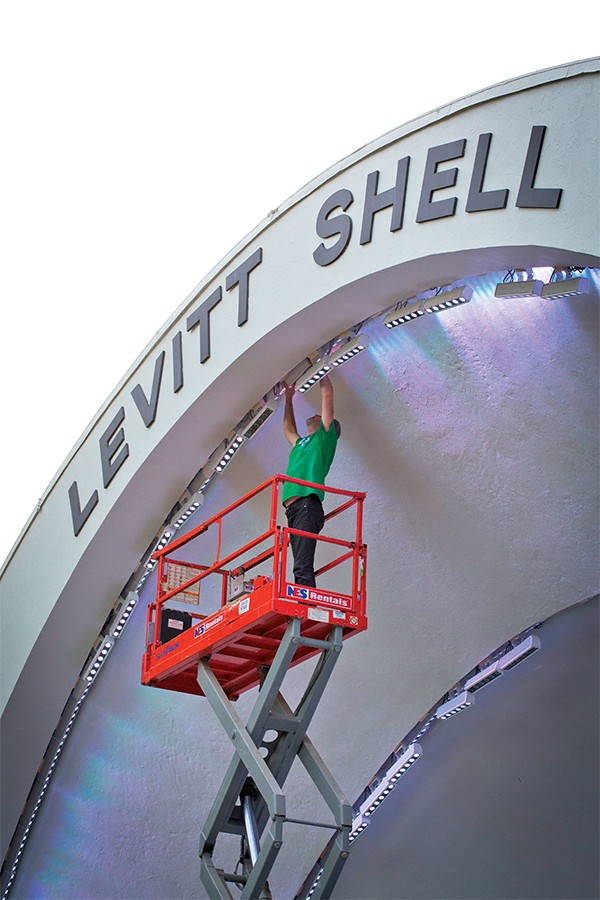
summer.
Musician Steve Selvidge searches for the right word to describe how he feels about the Shell. “Grateful,” he says, finally. “Especially as I get older. I’m so incredibly grateful for the Shell and for all the people who saved it. It’s such an important place — a family gathering place. And by family, I mean my blood family and also my family of musicians.”
Selvidge, who plays guitar with Sons of Mudboy, the Hold Steady, Big Ass Truck, and the Secret Service, grew up attending shows at the Shell. His dad, folk singer Sid Selvidge, also played the venue frequently by himself, and with Mud Boy and the Neutrons, a Memphis superband with Jim Dickinson on keys and Lee Baker on electric guitar. When the elder Selvidge passed in 2013, his memorial was held at the open-air theater, where a video clip from the 1968 Country Blues Festival was projected on the wall.
“And there’s Dad at the Shell singing with Moloch,” Steve says. “He’s such a baby, standing and singing right there, exactly where I’ve stood and played so many times — on the stage where my daughter has seen me play, and loved it. On the same stage where my daughter’s about to have a ballet recital. That’s pretty incredible.”
Selvidge has a special connection, but he’s not the only person able to measure out his family history in visits to the Shell. The venue was built in 1936 by the city of Memphis, in conjunction with President Franklin Roosevelt’s Work Progress Administration. Described as “a pledge to the future of music in Memphis,” it opened with a heavily attended concert under the stars.
Of the 115 similar outdoor theaters once scattered around the country (27 of which were WPA generated), fewer than 10 are still standing, and only three remain in use. “It’s hard doing concerts outdoors,” Pitts says. “At some point our culture changed and everybody wanted to go inside. But this place, this Shell, became such a part of the bloodwork of Memphis, and people have always come out to support it.”
Well, almost always.
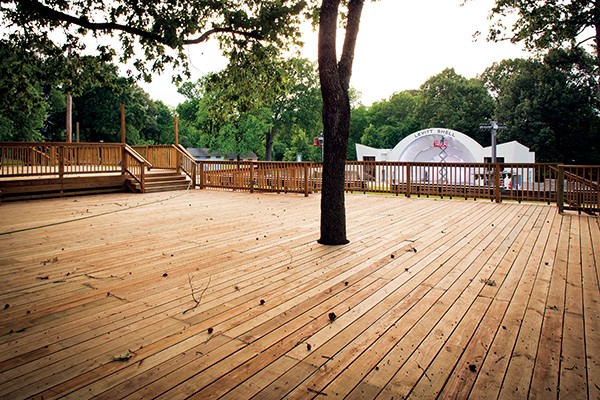
The Shell endured lean times in the 1980s, and might not have survived the decade if not for the tireless, sometimes single-handed efforts of an enthusiast named John Hanrahan. But Hanrahan died in a carpentry accident in 1985, while the theater’s fate was still up in the air. That year, 1985, was also the first year since its opening that the venue was completely dark, with no booked events.
Photographer, cinematographer, and longtime Shell advocate, David Leonard, describes Save Our Shell, Inc. — a ragtag coalition that kept the building standing and sporadically booked — as a big Irish wake for Hanrahan that never ended.
“John’s funeral was on a Friday,” he says. “We put a wreath on the stage, and a bunch of people gathered and started talking about what we could do for the Shell. By Sunday there was an article in The Commercial Appeal, and support was flowing in.
“The city had run out of ideas,” Leonard says, explaining how the building would have been leveled to create temporary parking for the 1987 “Ramses the Great” exhibit, if the ambitious prototype for Memphis’ Wonders series been installed at the Brooks Museum of Art, instead of at the Cook Convention Center, downtown.
Leonard and his Save Our Shell compatriots rolled up their sleeves and got busy fixing things. They kept the building booked and mostly operational for 18 years, with very little money, and nothing more than a handshake agreement from the Memphis Park commission.
“The city wouldn’t give us a real deal,” Leonard says. They wanted someone to step up, but hadn’t anticipated SOS’s eccentrics. Also, Memphis was still paying debt service on the Mud Island Amphitheater, and any competitive threat — remote as it might be — was cause for concern.
Enthusiasm for the preservation effort waned as Save Our Shell entered its second decade, with no resolution in sight. “After a certain amount of time, it just started to feel like a fire sale,” Leonard says. “How long do we have to keep on saving it until it’s finally saved?”
As funds and physical support dried up, the last years of Save Our Shell were essentially sponsored by Memphis musicians. “We couldn’t pay anybody,” Leonard says. “But there was never any doubt we could keep putting on shows, because people loved that place and wanted to play there.”
If musicians never stopped wanting to play the Shell, why was it so hard to stabilize the venue? As was the case with so many cities during that period, the urban core was becoming less dense as people and investment migrated to the suburbs.
“There was also a kind of cultural backlash,” Leonard says, recalling a more turbulent period in the 1970s, when a chain-link fence surrounded the Shell, and music promoters took advantage of cheap rental fees to book big ticket bands like Black Sabbath, the Allman Brothers, Ted Nugent and the Amboy Dukes, the James Gang, Deep Purple, and the Marshall Tucker Band. “Nobody was going to let anything like that happen again,” he says. “And they didn’t.”
“Christ, I guess it must have been 1972?” Puppeteer and percussion wizard Jimmy Crosthwait can’t quite remember what year it was when he built the 10-foot-tall puppet to introduce ZZ Top and “One Toke Over the Line” duo Brewer & Shipley at the Shell. He remembers that the latter group was pissed off because he made a remark about Nixon and Agnew, and suspects it went down not long after Memphis legalized liquor by the drink, and somewhere near the beginning of what he calls his 16-year weekend. “It was a wild time,” he says.
Crosthwait first visited the Shell in 1963, when he dropped in on a 20-act hootenanny his friend Jim Dickinson had organized. “It was like a folk festival. And that’s where I saw Sid Selvidge and Horace Hull doing a kind of bluegrass thing,” he says. “Sid played guitar and Horace played banjo, and they sang these haunting harmonies like two guys returning from the Civil War. It made a huge impression on me.”
Shortly thereafter, Crosthwait, a blossoming avant-garde percussionist who’d been banging on garbage cans with homemade mallets, took up the washboard and joined forces with Dickinson and Selvidge in a jug band-inspired outfit called the New Beale Street Sheiks — a precursor of Mud Boy and the Neutrons. He also became a regular fixture at the Shell, where he emceed the landmark 1968 Country Blues Festival, an event that attracted the attention of Sire Records, the Goodyear Blimp, and eventually, the city of Memphis.
“We were hoping the festival would get some kind of support from the city,” Crosthwait says. “And support was in no way forthcoming.” Institutional Memphis has often had a hard time understanding the value of Memphis’ musical heritage and its heritage sites. Civic leaders had no idea what to make of the hippies producing mixed-race blues concerts in Midtown.
“Well,” Crosthwait adds, “they weren’t interested, until they realized the Goodyear Blimp was going to be there. Oh, and that PBS was filming. When they found that out, they immediately sent someone down with a big Memphis Chamber of Commerce banner and hung it on the wall.”
When Leonard describes the “cultural backlash,” he refers primarily to the ’70s and the Shell’s fenced-in period. But the roots of this particular conflict date back to the dawn of rock-and-roll and crescendo throughout the civil rights era.
The second Memphis Country Blues Festival was held July 20, 1968, three months after Martin Luther King was assassinated at the Lorraine Motel. “We had a complete roster of black and white musicians and a complete audience of black and white people at the show,” Crosthwait says. Nationally, there was unrest, but not at the Blues Festival. “I didn’t really think about it until until years later. In its own way, that was a very special event, and an interesting unification of black and white participants on both sides of the stage.”
Memphis-connected filmmaker Augusta Palmer agrees. “These festivals had an amazing trajectory over a short period of time,” she says. “In 1967, it was put together on a wing and a prayer with almost no money. By 1969, there were two film crews shooting and multiple articles in Rolling Stone.”
Palmer recently launched a Kickstarter campaign to crowd-fund a documentary about the festival’s producing body, the Memphis Country Blues Society, of which her father, New York Times pop-music critic, and Deep Blues author Robert Palmer, was a founding member.
“Having these concerts at the Shell was really important, because it was in the heart of Memphis and it was open to anybody,” Augusta says, pointing out that a less-well-attended Ku Klux Klan rally was held at the Shell only a week before the first Country Blues Festival. “It was a place to create this community that hadn’t really existed before,” she says. “It still feels aspirational to have people of all races together celebrating American culture. It happens sometimes, but it doesn’t happen all the time.”
Palmer’s thoughts about the Blues Festivals mesh well with Pitts’ thoughts about the nature of outdoor spaces. “They make you more comfortable trying things you might not try otherwise,” she says, referring to the way concertgoers feel more comfortable sampling bands they’re not familiar with. “The barriers for entry are low.”
The online trailer for Palmer’s Kickstarter campaign features a vintage clip from a nationally aired PBS special hosted by actor, musician, and culture critic Steve Allen. It opens with Allen talking about a time in the early 1960s when young black and white men based in and around Memphis embarked on an effort to revive interest in regional blues traditions. “The result,” Allen concludes, “is a new, far out, modern Blues sound.”
Allen’s chair swivels about, and a curtain is pulled back to show a large space-age video screen and a tight closeup of, “The Band Shell in Overton Park.” It’s an impressive reveal, but not nearly as impressive as the improvements being unveiled this week.
“We feel like 80 years is a huge accomplishment,” Pitts says, acknowledging the anniversary. “But, right now, our focus is on getting to year 100 and making sure we’re ready for changes we may have to face.”
After living out of state for many years, former Collierville resident Kati Hoffman had an opportunity to relocate to West Tennessee. She and her husband considered returning to their old stomping ground but decided instead to take a house in the High Point Terrace neighborhood. On their first night back in town, friends invited the prodigal family to a Levitt Shell concert. “And that was it,” Hoffman says. “This was exactly the community we had been looking for.”
Shortly thereafter the Hoffman family moved closer to Overton Park and the Shell, where their 6-year-old daughter Thea has become a Thursday-Sunday regular.
“My favorite musicians are Dolly Parton and Cory Chisel,” Thea says, professing her love for the country music icon who hasn’t played the Shell and the Wisconsin folk rocker who has. She excitedly recounts the time she met Chisel when he was playing a set with his girlfriend Norah Jones. She’s a Sons of Mudboy fan, too, the band where Steve Selvidge and Crosthwait perform with Luther and Cody Dickinson, Paul Taylor, and others. But Chisel and Jones played the night Thea celebrated her birthday, so they won special places in the young audiophile’s heart.
Thea says she writes songs now, but wants to write better songs when she grows up. She started going to Shell concerts when she was 2 and will be 26 when it celebrates its centennial in 2036. She doesn’t get mad, exactly, when she finds out there was a time before the Levitt Foundation intervened, when her favorite summertime haunt was neglected and in danger of going away. But her soft voice takes on a distinct edge and the passion comes out. “If it was torn down, I wouldn’t be inspired to play any music. Because when you go to the Shell, kids can be inspired and they can grow up and they can write songs. If it was gone there wouldn’t be any music. And music is what makes people happy and joyful. Yeah.”
Yeah.
The 2016 Levitt Shell season launches Thursday, June 2nd, with performances by the Beale Street Flippers and New Orleans hip-hop ensemble the Soul Rebels. Admission is free. For a complete 2016 schedule, go to LevittShell.org.
